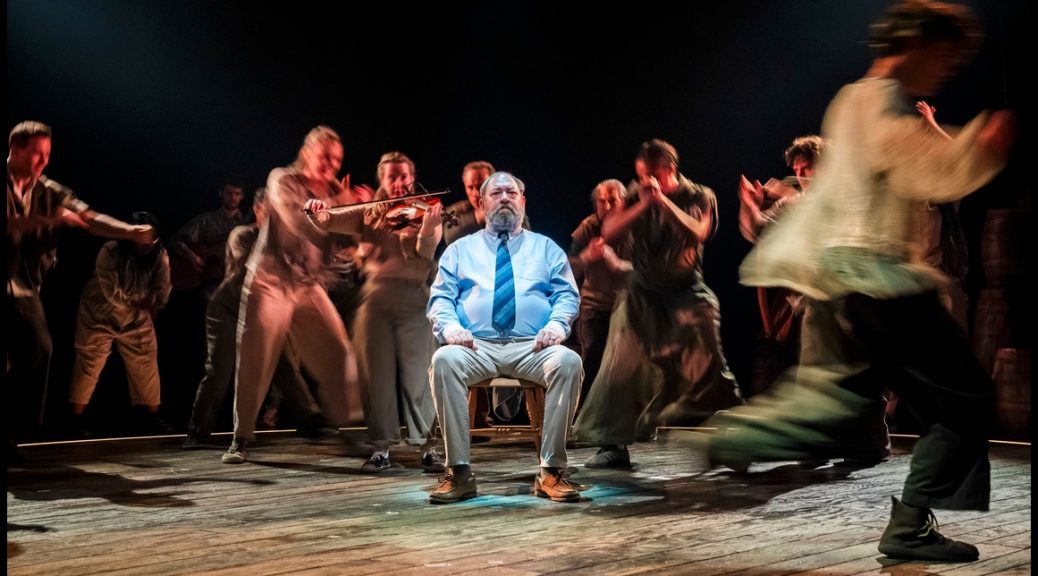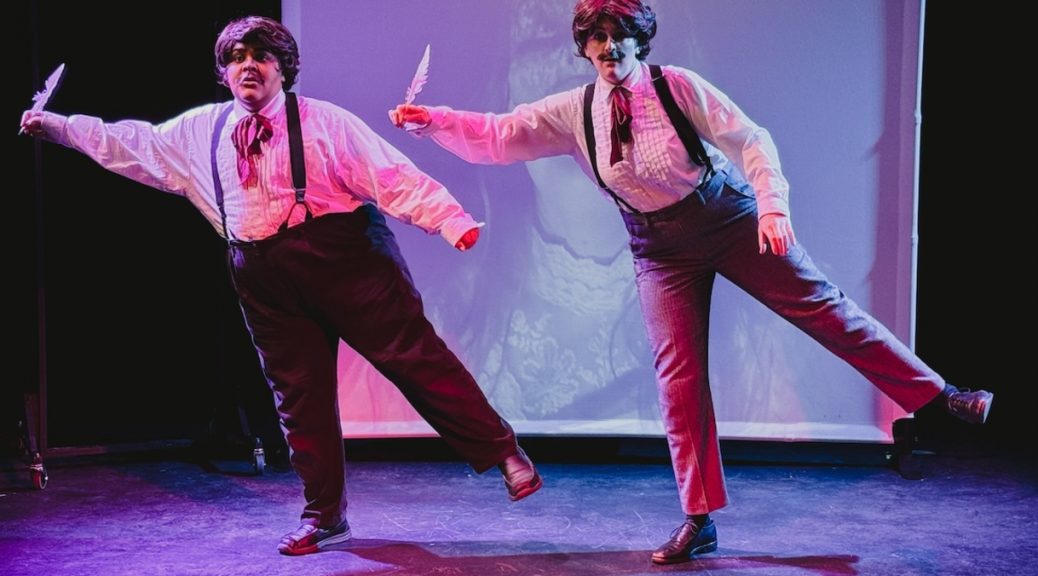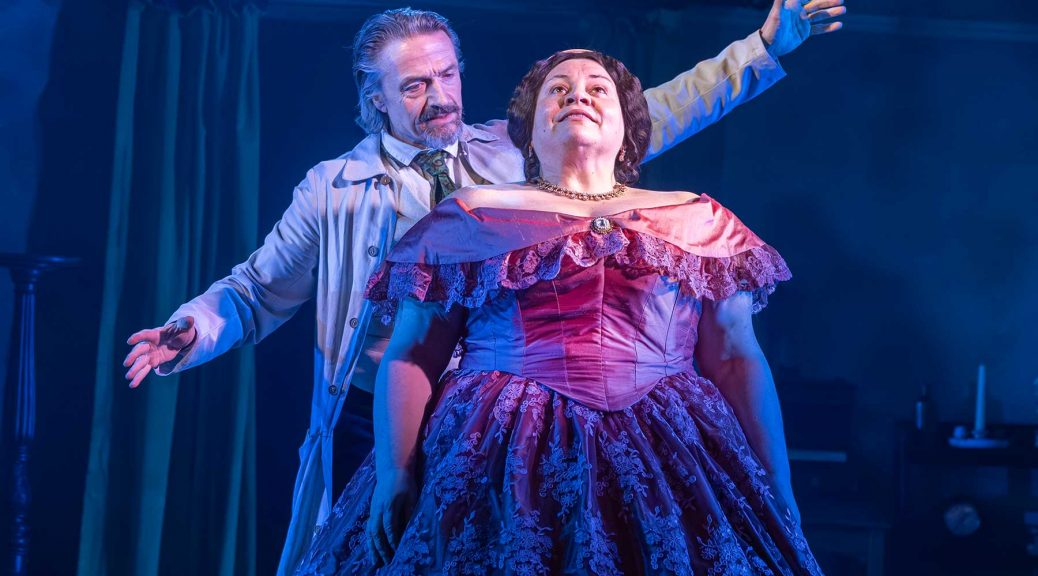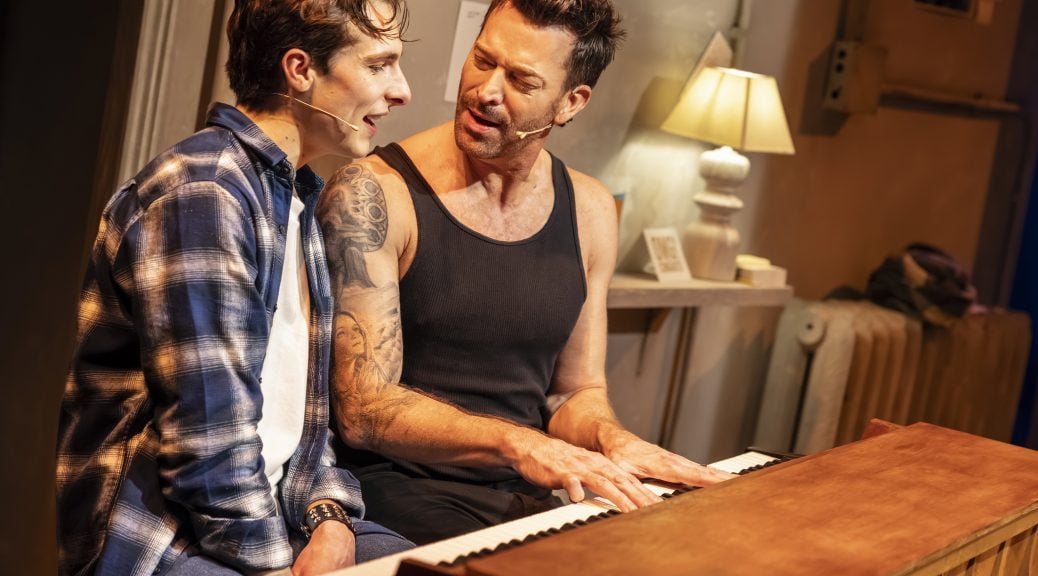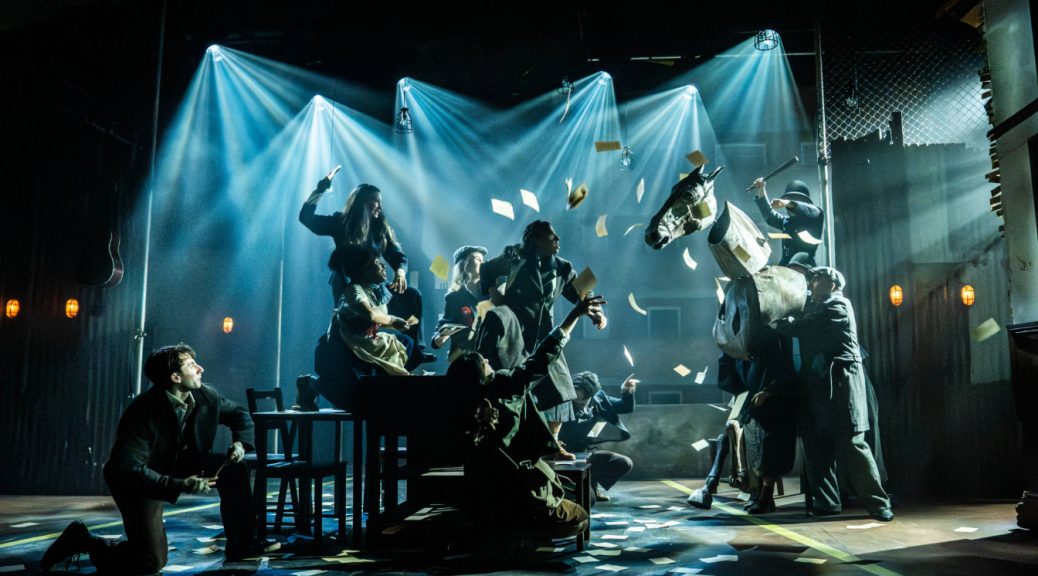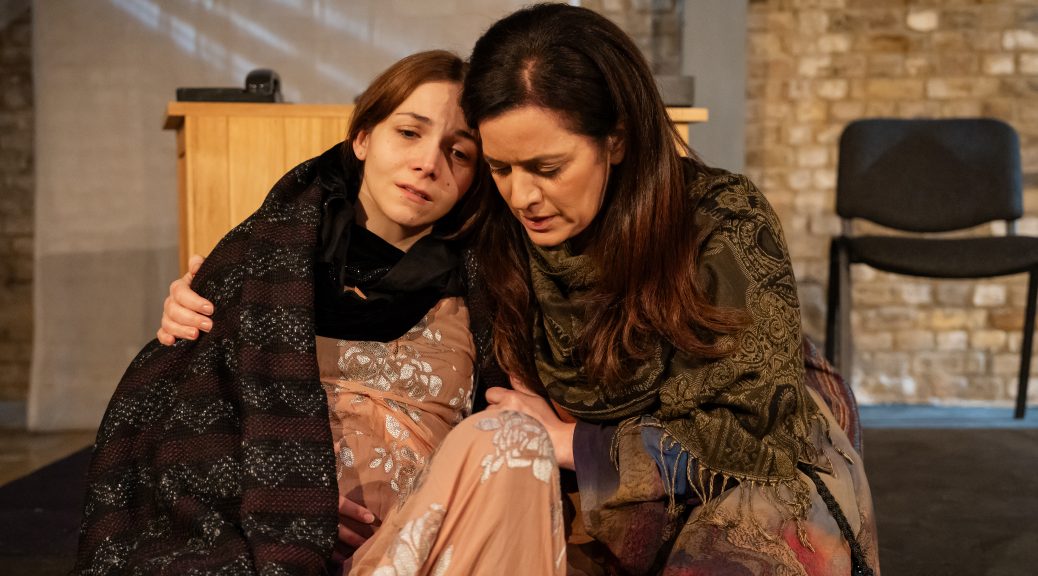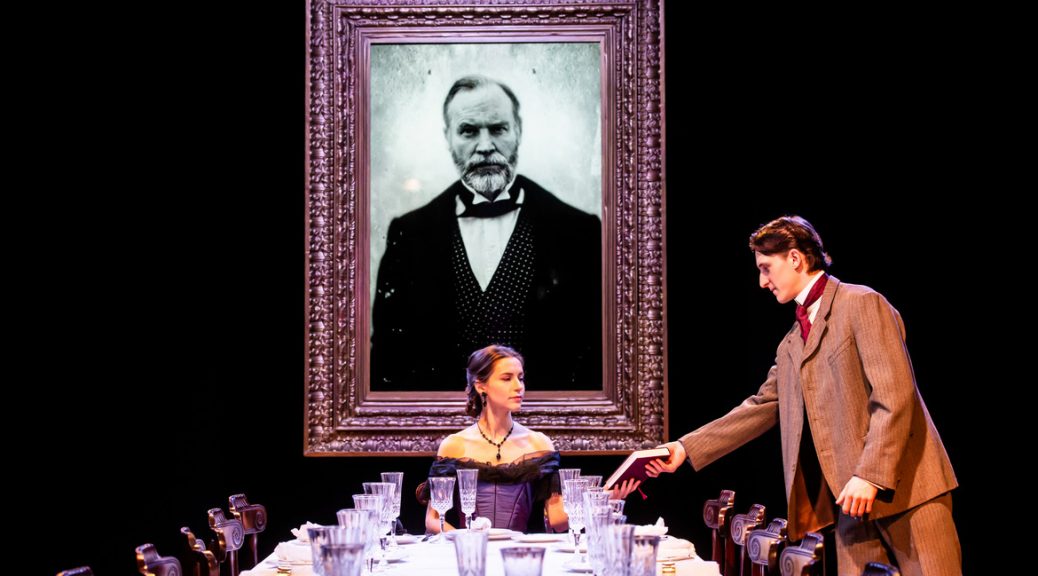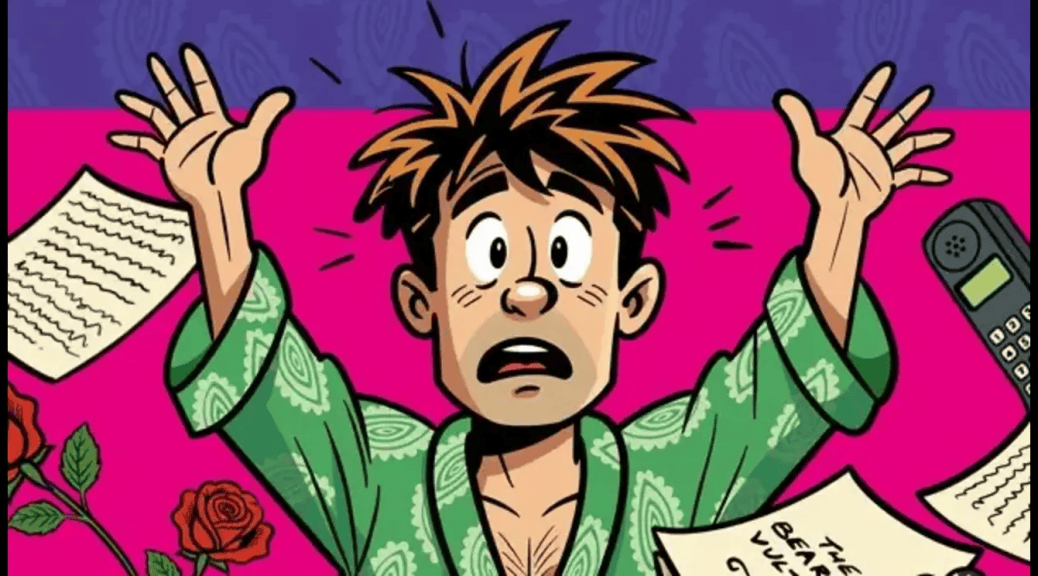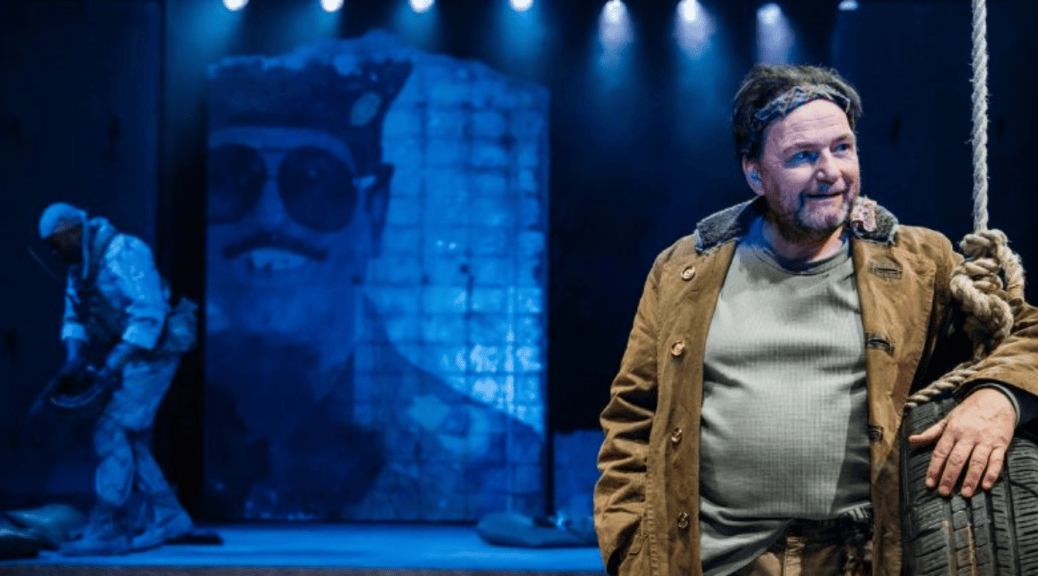Michael David Rosenberg, who performs under the stage name Passenger, is far from the first singer-songwriting star to explore musical theatre. At least his score here is new music, rather than a back catalogue, and it’s sure to please fans of soft rock folksy tones. The story is also original (not something from the big screen), adapted by Rachel Joyce from her own novel. So, we should all want to like The Unlikely Pilgrimage of Harold Fry. It’s a shame that I ended up grumpy about it.
The story and the structure are a little too simple, too obvious and too long. The titular lead undergoes a tiresome late-life crisis, walking across the country to see a dying former friend, attracting attention – and even more inexplicably, followers – along the way. He meets all sorts and we get to hear their songs. And, eek, while I think we’re supposed to learn something from them, the mix of “lived experience” and homespun philosophy is mostly twee and often silly.
All the eccentrics Harold encounters allow a hard-working cast to shine. There are enjoyable performances here, even if the characters are flat. As expected from a show arriving from Chichester, the production is great. Katy Rudd’s direction is slick, the design from Samuel Wyer strong and lighting from Paule Constable as excellent as ever. There is good puppetry, too (although alarm bells should ring for Rudd when one of them starts to steal the show).
To be fair, there’s an effort to stop it all being too sickly. There’s an intriguing balladeer character – an exciting West End debut for Noah Mullins – but his identity is kept a secret for too long. And there’s a past that Harold isn’t proud of, which is the core of the drama but doesn’t quite convince. Harold’s trauma leads to strong theatrical moments, but the emotion is manipulative and gets lost in surrounding nonsense. Mark Addy takes the title role and, while it isn’t a surprise he can make the character endearing, any angst just seems odd for too much of the time. I spent much of the show frustrated with him and more sympathetic toward his wife – a woefully, criminally, shockingly underused Jenna Russell.
Regrettably, all this isn’t the biggest problem for The Unlikely Pilgrimage of Harold Fry. While the songs aren’t bad, although the effort to add variety and bring the sound together for a show is half-hearted, the lyrics are dire. You can award points for the use of expletives (and Bratislava), but there are so many clichés that listening is painful. And the rhymes are horribly predictable: Fry, cry, fly, why. With all the easy emotion and quick efforts at inspiration, it ends up boring and feels cheap.
Until 18 April 2026
Photo by Tristram Kenton

